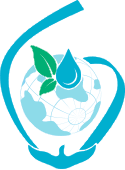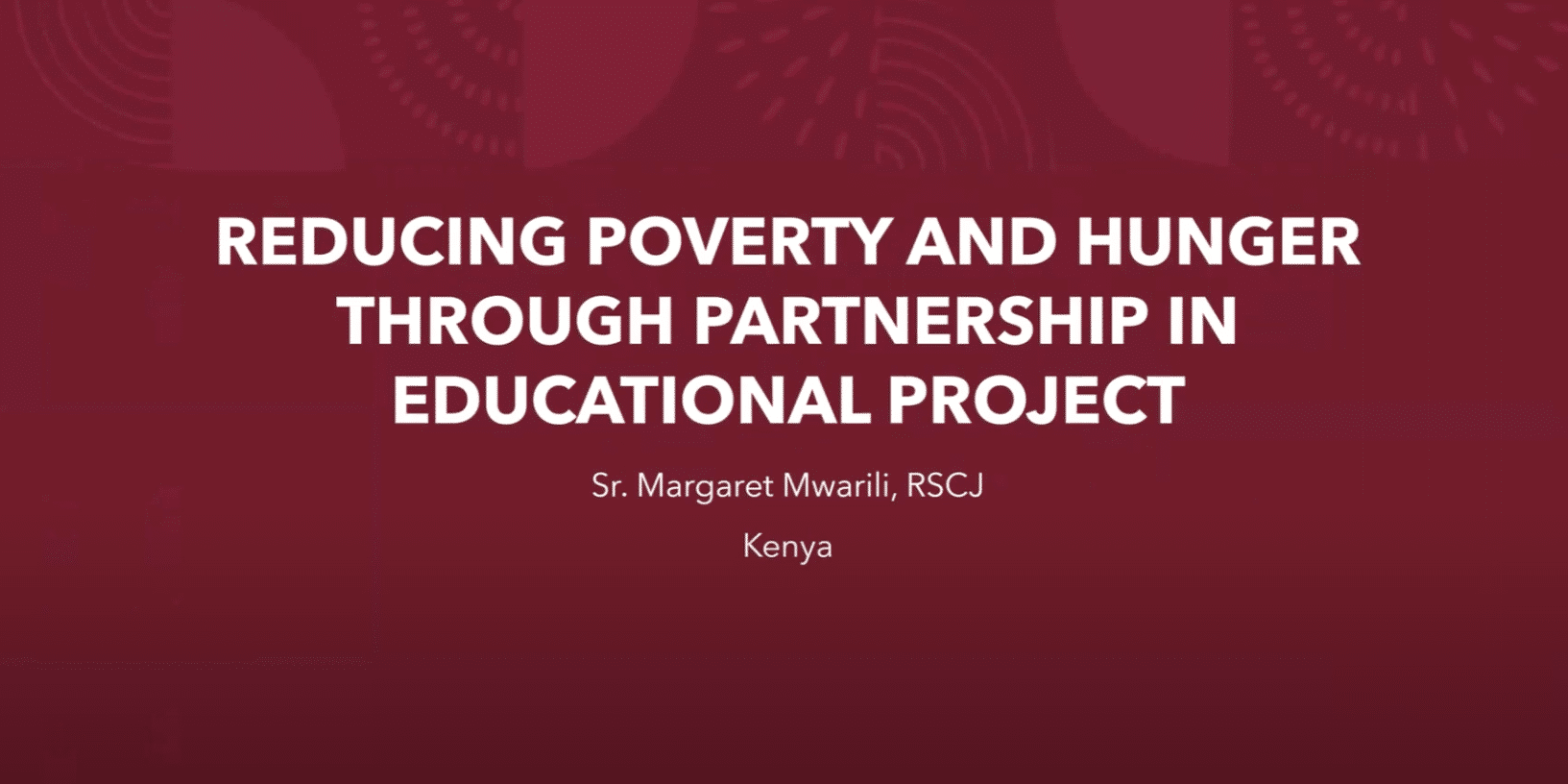The final session of the 2024 JCoR SDG Lab concluded on July 29th, 2024. Held alongside the High-Level Political Forum on Sustainable Development, the Lab brought together Catholic religious leaders and partners to share insights on effective approaches to achieving sustainable development in their respective countries. This final session focused on SDG # 1 – Eradicating Poverty.
Margaret Mwarili RSCJ, our Sacred Heart at the UN representative, was one of the speakers featured in this event. We are pleased to share her presentation from the event, where she talked about Reducing Poverty and Hunger through Partnership in Educational Projects below.
Click here to watch the recording of the JCoR Session.
Introduction
My name is Margaret Mwarili. I am the UN-NGO representative of the Society of the Sacred Heart. Our congregation serves in about 45 countries worldwide, focusing primarily on the education of young people. We work in schools, health facilities, with migrants, in pastoral work and in advocacy work. I would like to share our contribution to the implementation of SDG 1 and the impact of this implementation on other SDGs, particularly focusing on our work in Kenya.
Educational Projects in Informal Settlements
In Kenya, our cooperative ministries are with the poor in informal settlement. In Nairobi for example, we serve in Kibera, the largest slum South of the Sahara Desert, where many live in extreme poverty. Our involvement began in 1992 with a small feeding program. One of our sisters, a social worker, initiated a program to rescue children off the streets. We provided them with breakfast, basic lessons, and lunch. This program evolved into in-formal education and later into a formal curriculum registered with the Ministry of Education.
Growth and Development
The project started with a few children and grew to a full school which now has about 600 children, prioritizing both girls and boys below 18 years from the streets. We faced challenges in feeding the children and sought donors, receiving cereals from the World Food Program and pulses from UNICEF. We also found Donors who funded extracurricular activities and staff salaries. Over time, the learning environment improved from mud classrooms to classrooms constructed with timber to permanent structures. Learning environment was improved by Care international and the Society of Jesus.
Networking and Partnerships
We connected our school in Kibera with our others schools in the developed countries to raise tuition fees for students. We collaborated with Jesuit Fathers for high school admissions and Opus Dei for university placements. Donors continued to support secondary and college education for our students. Our efforts helped many children leave the streets, protected them from hunger, and provided quality education, enabling some of them to move their families out of informal settlements once they were employed.
Supporting Self-Sufficiency
For those ready to move back to villages, we provided seeds, fertilizer, and alpine sheep for milk. During the pandemic, we supported our parents’ small businesses affected by economic disruptions. We partnered with various organizations, including WFP, UNICEF, CARE International, and DKA, and worked closely with the Guadalupe Fathers in the parish to raise funds for various school projects; Library, Learning Materials etc. As donor support reduces, we encourage parents to contribute towards their children’s education.
Expansion to Eldoret
In response to effects and challenges from tribal clashes of 2007/2008, we are setting up a similar project in Eldoret, to serve children from Langas Informal Settlement and to absorb the so many children who spend time on the streets. Here, you meet boys selling small items in informal settlement markets and operating motor cycles for transportation, while girls who can’t afford education stay at home to do menial work, work as house girls in other peoples’ homes or face early pregnancies due to idleness and lack of tuition fees. Most of these children identify their residence as Langas Slum. Many of our educational beneficiaries from the informal settlements, come from single-mother families or extremely poor households. These projects serve as avenues to quality education, means of eradicating; poverty, hunger, all kinds of inequalities, means of preparing young people for decent work, means of improving health and working on peace and reconciliation as children from conflicting communities learn how to share, work and live together peacefully.
Conclusion
Through our educational projects, we contribute to implementation of this year’s SDGs that countries are reporting on; reduction of poverty and hunger, we provide education that create opportunities for many children. Our partnerships and networking efforts have been crucial in sustaining and expanding these initiatives, demonstrating the power of collaboration in achieving SDGs 1,2,3,4, 5,6,7, 10, 15,16 and 17. Behind this upcoming school there is more than 8 acres of land some of which will be used by children as play ground and the other will be used as demonstration gardens for agriculture where children will learn how to grow food and take care of the environment.




